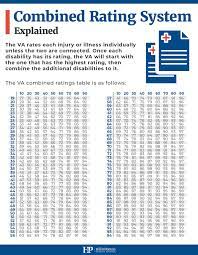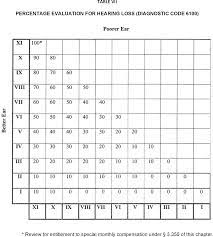Title: Empowering Disabled Veterans: Essential Services and Support
Introduction:
Disabled veterans have made immense sacrifices in serving their country, and it is our duty to ensure they receive the support they need to lead fulfilling lives after their service. Fortunately, there are numerous services available to disabled veterans that aim to address their unique challenges and assist them in achieving independence, well-being, and success. In this article, we will explore some of the essential services provided to disabled veterans and highlight the organizations dedicated to making a difference in their lives.
Healthcare Services:
One of the most critical aspects of supporting disabled veterans is ensuring they have access to quality healthcare. The Department of Veterans Affairs (VA) offers comprehensive medical care, including specialized services for disabilities resulting from military service. These services encompass physical rehabilitation, mental health support, prosthetics, assistive technology, and more. The VA’s commitment to providing personalized care helps disabled veterans regain functionality and enhance their overall quality of life.
Vocational Rehabilitation and Employment Programs:
Reintegrating into civilian life can be a daunting task for disabled veterans who may face employment challenges due to their disabilities. To address this issue, the VA provides vocational rehabilitation programs aimed at assisting disabled veterans in developing new skills or retraining for alternative careers. These programs offer counseling, job placement assistance, educational benefits, on-the-job training opportunities, and entrepreneurial support. By empowering disabled veterans with the necessary tools and resources for employment success, these programs contribute significantly to their self-sufficiency.
Adaptive Housing Assistance:
Accessible housing plays a crucial role in enabling disabled veterans to live independently and comfortably. Through various grants and loan programs like the Specially Adapted Housing (SAH) grant or Special Home Adaptation (SHA) grant offered by the VA, eligible veterans can receive financial aid for modifying their homes or acquiring suitable housing that accommodates their specific needs. These adaptations might include wheelchair ramps, widened doorways, or bathroom modifications, ensuring a safe and accessible living environment for disabled veterans.
Mental Health Support:
The invisible wounds of war can have a profound impact on the mental well-being of disabled veterans. Recognizing this, the VA offers comprehensive mental health services to address conditions such as post-traumatic stress disorder (PTSD), depression, anxiety, and substance abuse. These services encompass counseling, therapy, medication management, and support groups. Additionally, numerous non-profit organizations like Wounded Warrior Project and Give an Hour extend their reach to provide specialized mental health support tailored to the unique needs of disabled veterans.
Conclusion:
Disabled veterans deserve our unwavering support for their sacrifices in defending our nation. Through dedicated healthcare services, vocational rehabilitation programs, adaptive housing assistance, and mental health support initiatives, we can empower disabled veterans to overcome challenges and thrive in civilian life. It is crucial that we continue to advocate for these essential services and raise awareness about the resources available to ensure that no disabled veteran is left behind. Let us honor their service by providing them with the care and support they deserve.
5 Essential Tips for Accessing Disabled Veterans Services
- Explore VA Benefits
- Understand Disability Ratings
- Connect with Veteran Service Organizations (VSOs)
- Seek Employment Assistance
- Stay Informed about Changes
Explore VA Benefits
Title: Explore VA Benefits: Unlocking Support for Disabled Veterans
Introduction:
As disabled veterans transition from military service to civilian life, it’s crucial for them to be aware of the wide range of benefits available through the Department of Veterans Affairs (VA). Exploring these benefits can make a significant difference in their well-being and help them navigate the challenges they may face. In this article, we highlight the importance of exploring VA benefits and how they can provide vital support to disabled veterans.
Comprehensive Healthcare:
One of the most valuable benefits that disabled veterans can access is comprehensive healthcare provided by the VA. From routine medical care to specialized services, such as physical rehabilitation, mental health support, and prosthetics, the VA ensures that disabled veterans receive the necessary treatment and assistance tailored to their specific needs. By exploring these healthcare benefits, disabled veterans can regain functionality, improve their quality of life, and address any service-connected disabilities effectively.
Disability Compensation:
Disabled veterans may be eligible for disability compensation through the VA. This financial support provides monthly tax-free payments based on the severity of their service-connected disabilities. By exploring disability compensation benefits, disabled veterans can receive financial assistance that helps cover living expenses and eases the burden caused by disabilities resulting from their military service.
Vocational Rehabilitation and Employment:
The VA offers vocational rehabilitation and employment programs designed to help disabled veterans overcome employment challenges and build successful careers. These programs provide counseling, job placement assistance, educational benefits, on-the-job training opportunities, and even support for starting a business. By exploring these resources, disabled veterans can access valuable guidance and tools necessary for reentering the workforce or pursuing new career paths.
Accessible Housing Assistance:
Disabled veterans often require housing modifications or accessible housing options to live independently with dignity. The VA offers various grants and loan programs that provide financial aid for adapting homes or acquiring suitable housing. By exploring accessible housing benefits, disabled veterans can receive the necessary support to create a safe and accommodating living environment that meets their specific needs.
Conclusion:
Exploring VA benefits is a crucial step for disabled veterans to unlock the support they deserve. From comprehensive healthcare and disability compensation to vocational rehabilitation programs and accessible housing assistance, these benefits are designed to address the unique challenges faced by disabled veterans. By taking advantage of these resources, disabled veterans can enhance their well-being, regain independence, and thrive in civilian life. It is essential for disabled veterans and their families to stay informed about the available VA benefits and access the support they have earned through their honorable service.
Understand Disability Ratings
Understanding Disability Ratings: A Key Tip for Disabled Veterans Services
When navigating the world of disabled veterans services, one crucial tip that can greatly benefit veterans is to understand disability ratings. Disability ratings play a significant role in determining the level of benefits and support that disabled veterans are entitled to receive.
The Department of Veterans Affairs (VA) assigns disability ratings based on the severity of a veteran’s service-connected disabilities. These ratings range from 0% to 100%, with higher percentages indicating more severe disabilities. Understanding how disability ratings work can help disabled veterans access the appropriate level of assistance they need.
Firstly, it is essential for disabled veterans to undergo a thorough evaluation conducted by medical professionals at the VA. This evaluation will determine the extent to which their disabilities are related to their military service. Based on this assessment, the VA assigns a percentage rating that reflects the impact of these disabilities on their daily lives.
The disability rating directly influences various aspects of disabled veterans services. It determines eligibility for compensation benefits, healthcare coverage, vocational rehabilitation programs, adaptive housing assistance, and more. The higher the disability rating, the greater the level of benefits and support available.
It is crucial for disabled veterans to review and understand their disability rating decision carefully. If they believe their rating does not accurately reflect the severity of their disabilities or if there are additional conditions that were not considered, they have the right to appeal and request a reevaluation.
To navigate this process effectively, disabled veterans can seek guidance from organizations like Disabled American Veterans (DAV) or connect with accredited representatives who specialize in assisting with VA claims and appeals. These resources can provide valuable insights into understanding disability ratings and guide veterans through the necessary steps to ensure they receive fair and appropriate benefits.
In conclusion, understanding disability ratings is a vital tip for disabled veterans seeking services and benefits. By comprehending how these ratings impact eligibility for various forms of support, disabled veterans can advocate for themselves effectively and access the assistance they need to lead fulfilling lives after their military service.
Connect with Veteran Service Organizations (VSOs)
Title: Connect with Veteran Service Organizations (VSOs) for Comprehensive Disabled Veterans Services
Introduction:
When it comes to accessing the wide range of services available to disabled veterans, connecting with Veteran Service Organizations (VSOs) can be a game-changer. VSOs play a vital role in advocating for and providing support to disabled veterans, ensuring they receive the care, benefits, and resources they deserve. In this article, we will highlight the importance of connecting with VSOs and how they can assist disabled veterans in navigating the complexities of their unique situations.
Expert Guidance and Assistance:
VSOs are staffed by dedicated professionals who possess extensive knowledge about the benefits and services available to disabled veterans. They understand the intricacies of the system and can guide individuals through the application processes, ensuring they receive all eligible benefits. Whether it’s healthcare services, disability compensation claims, vocational rehabilitation programs, or housing assistance, VSOs are equipped to provide expert guidance and assistance every step of the way.
Advocacy and Support:
VSOs actively advocate for disabled veterans’ rights and work tirelessly to ensure their needs are met at both local and national levels. These organizations collaborate with government agencies, lawmakers, and community partners to address systemic issues affecting disabled veterans. By connecting with VSOs, individuals can become part of a collective voice that advocates for policy changes and improved services that directly impact their lives.
Networking Opportunities:
VSOs provide valuable networking opportunities for disabled veterans to connect with fellow servicemembers who have faced similar challenges. Through support groups, social events, and community activities organized by VSOs, disabled veterans can build meaningful relationships with others who understand their experiences. This camaraderie fosters a sense of belonging and provides emotional support throughout their journey towards recovery and reintegration.
Community Engagement:
VSOs actively engage with local communities to raise awareness about the needs and contributions of disabled veterans. They collaborate with businesses, educational institutions, and healthcare providers to create inclusive environments that support disabled veterans’ integration into civilian life. By connecting with VSOs, disabled veterans can tap into a network of community resources and opportunities that facilitate their overall well-being.
Conclusion:
Connecting with Veteran Service Organizations (VSOs) is a crucial step in accessing comprehensive services and support for disabled veterans. These organizations offer expert guidance, advocacy, networking opportunities, and community engagement initiatives that empower disabled veterans to lead fulfilling lives after their service. By reaching out to VSOs, disabled veterans can ensure they receive the benefits they deserve while becoming part of a supportive community that understands their unique challenges. Let us encourage disabled veterans to connect with VSOs and access the resources available to them as they continue their journey towards success and well-being.
Seek Employment Assistance
Title: Seek Employment Assistance: Unlocking Opportunities for Disabled Veterans
Introduction:
Transitioning from military service to civilian life can be a challenging journey, particularly for disabled veterans who may face additional obstacles in securing employment. However, there are numerous resources and programs available to assist disabled veterans in finding meaningful employment opportunities. Seeking employment assistance not only opens doors to financial stability but also promotes personal growth, independence, and a sense of purpose. In this article, we will explore the importance of seeking employment assistance and highlight some valuable resources that can help disabled veterans navigate their career paths.
The Value of Employment Assistance:
Disabled veterans possess unique skills and experiences gained during their military service that make them valuable assets in the workforce. However, they may require specialized support to overcome any physical or mental barriers they face. Seeking employment assistance allows disabled veterans to access tailored services such as career counseling, job training programs, resume building workshops, interview preparation, and job placement support. These services play a crucial role in enhancing their employability and connecting them with employers who understand and appreciate their abilities.
Veterans Affairs Vocational Rehabilitation and Employment (VR&E) Program:
The Veterans Affairs Vocational Rehabilitation and Employment (VR&E) program is a key resource for disabled veterans seeking employment assistance. VR&E offers comprehensive services aimed at helping disabled veterans identify suitable career paths, develop necessary skills through education or training programs, and secure gainful employment. Through personalized counseling and guidance from VR&E counselors, disabled veterans can explore various vocational options that align with their interests and abilities.
Non-Profit Organizations:
Numerous non-profit organizations are dedicated to assisting disabled veterans in their job search efforts. Organizations like Hire Heroes USA, Disabled American Veterans (DAV), and The Mission Continues provide specialized employment services tailored to the unique needs of disabled veterans. These organizations offer mentorship programs, networking opportunities with employers, resume reviews, interview coaching, and job fairs specifically designed for disabled veterans. By leveraging the expertise and resources of these organizations, disabled veterans can gain a competitive edge in the job market.
Government Initiatives:
In addition to non-profit organizations, the government has implemented initiatives to support disabled veterans in their employment pursuits. The Work Opportunity Tax Credit (WOTC) program provides tax incentives to employers who hire disabled veterans, making them more likely to consider and prioritize hiring this talented pool of individuals. Disabled veterans can also benefit from preferential hiring practices within federal agencies through the Veterans’ Preference Program. These initiatives aim to level the playing field and create opportunities for disabled veterans in both public and private sectors.
Conclusion:
Seeking employment assistance is a vital step for disabled veterans as they transition into civilian life. The availability of specialized programs, non-profit organizations, and government initiatives ensures that disabled veterans have access to valuable resources that can help them overcome barriers and secure meaningful employment opportunities. By taking advantage of these services, disabled veterans can unlock their full potential, contribute their skills to the workforce, and embark on a new chapter filled with purpose and success. Let us continue supporting our disabled veterans by encouraging them to seek employment assistance and helping them achieve their professional goals.
Stay Informed about Changes
Staying Informed about Changes: Ensuring Access to Disabled Veterans Services
For disabled veterans, staying informed about changes in policies, programs, and services is crucial to ensuring they receive the support they need. As the landscape of disabled veterans services evolves, it’s important for veterans and their families to stay updated on any modifications or additions that may impact their benefits and well-being.
Government agencies such as the Department of Veterans Affairs (VA) regularly update their policies and programs to better serve disabled veterans. By staying informed about these changes, veterans can take advantage of new opportunities and resources that may enhance their quality of life.
One effective way to stay informed is by regularly visiting official websites and social media platforms of relevant organizations. The VA website provides valuable information on benefits, healthcare services, education programs, employment assistance, and more. It is advisable to check these sources frequently for updates or subscribe to newsletters that provide timely notifications on policy changes.
Additionally, attending local meetings or workshops organized by veteran service organizations can provide firsthand information about changes in disabled veterans services. These gatherings often feature guest speakers from government agencies or advocacy groups who share updates and answer questions from attendees. Participating in such events not only keeps veterans informed but also allows them to connect with fellow veterans facing similar challenges.
Another valuable resource is veteran service officers (VSOs) who work within organizations like the American Legion or Disabled American Veterans. VSOs are well-versed in disabled veterans services and can assist with navigating through any policy changes or new programs. They can help ensure that disabled veterans are aware of all available benefits and guide them through the application processes.
Staying informed also involves being proactive in seeking information. Regularly reaching out to local VA offices or contacting veteran support hotlines can provide direct access to knowledgeable staff who can answer questions regarding changes in services.
By staying informed about changes in disabled veterans services, individuals can take advantage of new opportunities, adapt their plans accordingly, and ensure they receive the full range of benefits they deserve. Being proactive in seeking information and staying connected with relevant organizations will empower disabled veterans to make informed decisions about their well-being and future.
Remember, knowledge is power, and staying informed is essential to accessing the support and services that disabled veterans need to lead fulfilling lives after their service.




